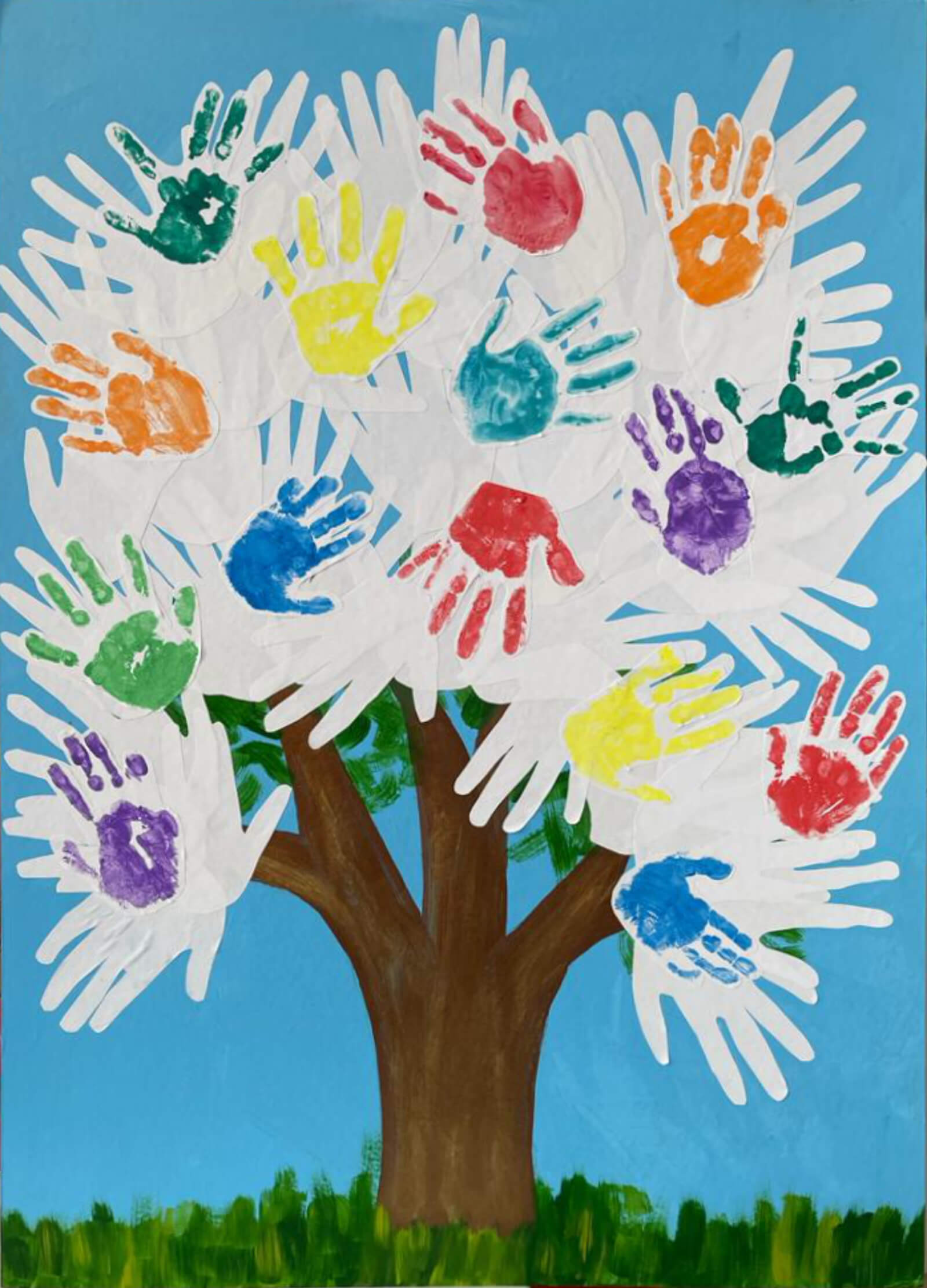Trispera Pharma Solutions Dr. Ekin Öztüzün Interview
We would like to get to know you and Trispera better; could you explain to us? Dr. Ekin Öztüzün: In 2009, I graduated from Ege University Faculty of Medicine. Before joining Trispera, I worked as a physician in the public sector for more than 10 years, including various management roles. I have been with Trispera since 2020 and I am responsible for the company's medical operations. As Trispera, we aim to become one of the leading companies in rare disease solutions in Turkey and the Middle East. Our dream is to live in a world where every person with a rare disease has access to treatment.

How did you get interested in this field? The year I graduated from medical school, I was very affected by the loss of my cousin Dr. Evrim Kimyonok, whom I grew up with and loved like a sister, due to a very rare disease. Her diagnosis was hemophagocytic lymphohistiocytosis, a disease with an incidence of 1-2 per million. I vividly remember the difficulties and hardships she and her family went through during the diagnosis and treatment process. I still feel the sense of helplessness that there was no specific treatment option for Evrim at that time. In her memory, it is very valuable for me to work to bring new treatments to patients with rare diseases.
“Our dream is to live in a world where every person with a rare disease has access to treatment.”
What is a rare disease? Is it hereditary? Rare diseases, as defined in Europe, are classified as diseases that affect less than 1 in 2000 people. There are over 7000 rare diseases identified so far. About 4% of these diseases account for 80% of the entire rare disease population. This shows us that there are many rare diseases that are ultra-rare and unrecognized by the general public. Most rare diseases have a genetic origin and begin in childhood. Consanguineous marriages are a risk factor for genetic diseases, which is why these diseases are more common in countries where consanguineous marriages are common than in other countries.
What are the challenges in diagnosis and treatment of rare diseases? Diagnosis and treatment processes of rare diseases are very difficult, long and costly. Since diagnosis and treatment processes require special approaches and practices, many obstacles are encountered. It usually takes long years to diagnose these diseases and for these reason, the disease can be neglected for years. On average, a patient may need to visit doctors 7 times to receive a diagnosis. It is estimated that 40% of rare disease sufferers experience at least one misdiagnosis. Once diagnosed, it is desired to start appropriate treatment, but unfortunately only 5% of rare diseases have an effective treatment option in the world. In order to develop more treatment options and research these diseases, which are very costly, it is of great importance that administrative institutions provide R&D support to pharmaceutical companies and raise the awareness of physicians after drug or treatment development.
What can you say about the unmet needs in the rare disease field? The main characteristics that distinguish rare diseases from other fields are that there is a wide spectrum of diseases, a small number of patients affected by each disease and therefore less drug research, hence a high rate of unmet need, and only a limited number of these diseases, which in many cases are fatal or severely reduce quality of life, are curable. For rare diseases for which there is a cure, access to treatment can result in very positive improvements in the lives of patients and their relatives. For these reasons, we at Trispera Pharma Solutions are focused on creating benefit in the field of rare diseases, both with the desire to indirectly support these patients and their relatives and to fulfill the unmet need we see in this field.
From the perspective of a physician and medical director, what is the approach of the medical community in our country to rare diseases? According to the results of the questionnaire answered by physicians experienced in the diagnosis and treatment of rare diseases, which was published at the Rare Diseases Day Training Meeting held by Istanbul University Istanbul Faculty of Medicine on 28 February, the most important problems encountered in the diagnosis of rare diseases from the perspective of physicians were listed as follows:
- Low awareness of rare diseases,
- Lack of multidisciplinary approach,
- Lack of experienced and competent people dealing with rare diseases,
- Insufficient physical space and technological infrastructure,
- Difficulties in the diagnostic process,
- Lack of an expanded newborn screening program.
The seven most important problems in the treatment of rare diseases are:
- Low awareness of rare diseases,
- Insufficient number of appropriate teams and centers,
- Inadequate multidisciplinary approach,
- Limited laboratory services in the diagnosis and follow-up process,
- Difficulty accessing treatment,
- Difficulties in maintaining uninterrupted treatment
- Inadequate psychosocial support and rehabilitation programs.
“It is of great importance that institutions provide R&D support to pharmaceutical companies and raise the awareness of physicians after drug or treatment development.”
According to the results of the patient and patient relatives surveys conducted by Acıbadem University ISTisNA Platform, patients have difficulties in accessing healthcare services, reaching the specialist physician who knows the disease in the treatment and diagnosis process, accessing the right source of information about the disease, making a hospital appointment, getting the correct diagnosis of their diseases, accessing treatment and medication, and obtaining medical devices such as hearing aids, special glasses, orthopedic support devices. According to the same survey, patients and their relatives report that the most important problems they face in daily life are difficulties in school, difficulties with personal care, inability to participate in social life and difficulties with motor and sensory functions.

The picture made for Trispera from the event Trispera organized with Painter Beyhan Cansu and Mevlanakapı Special Education Application School students for Rare Diseases Day.
What is the importance of genetic screening programs in rare diseases? According to the latest scientific research, 80% of rare diseases have a genetic origin, while the rest are environmental or unknown factors. Consanguineous marriage is the most important risk factor that increases the likelihood of rare diseases of genetic origin. In societies with high rates of consanguineous marriage, the incidence of rare diseases is much higher than in societies with low rates of consanguineous marriage. However, couples with or without consanguineous marriage should definitely receive genetic counseling, because rare diseases can also occur in children of unrelated parents. Diagnosing rare diseases early is important both in terms of treatment processes and to maintain quality of life. Pre-marital screening and newborn screening programs increase success rates in the treatment process. Screening the family of a person with an identified rare disease enables both early diagnosis of other patients in the family and detection of carrier individuals in the family, if any.
F. L: What does Trispera do to address unmet needs in the field of rare diseases? One of the most important elements in addressing unmet needs in rare diseases is to increase physician awareness. We communicate with thought leaders in the industry, physicians and relevant associations and collaborate with these groups to promote education and awareness efforts. We aim that awareness of rare diseases and their impact on patients and their families will help to ensure that patients receive timely and appropriate care.
Pharmaceutical companies play a critical role in the development and delivery of treatments for rare diseases. We advise pharma companies on their regulatory compliance, market access and strategy, and aim to enable pharma companies to deliver life-saving treatments to patients.
For patients with rare diseases, early access to medicine programs provide a pathway to access innovative and potentially life-saving treatments. At Trispera, we guide pharmaceutical companies in managing these programs and help facilitate the delivery of these therapies to patients. Through early access programs, we aim to bring hope to patients facing the challenge of living with a rare disease.
What kind of activities does Trispera carry out to raise social and sectoral awareness in the field of rare diseases? I believe that the most important of our awareness-raising projects is the "Rare Diseases Blog" project we created with Gene2info. The Rare Diseases Blog is a platform that enables physicians to follow the most up-to-date and important rare disease articles, and Trispera is the content partner of this platform. We also have a community of physicians and pharmaceutical industry professionals who follow our Trispera social media accounts. Through social media, we aim to raise awareness of rare diseases among physicians and pharmaceutical industry representatives, and we regularly share various informative posts, rare disease awareness days and current rare disease news. As the Trispera team, raising awareness on rare diseases has been our primary motivation. With these efforts, we hope to make a positive contribution to the lives of patients and their relatives, even if indirectly.
Anything you would like to add? I am very sorry for the loss in the earthquake disaster that occurred in our country in February and deeply affected millions of people, as someone who has lost relatives in this earthquake myself. On behalf of the Trispera team, I wish patience to the relatives of those who lost their lives, a speedy recovery to the injured and hope that all earthquake victims will be able to return to their homes and cities as soon as possible. The effects of the earthquake have limited the conditions of victims with rare diseases and their caregivers in many cities, making it difficult for them to access medication and medical device support and living conditions. I would like to extend my support and thanks to all individuals, institutions and organizations that have shown sensitivity and worked on this issue.